The crisis that occurred between Russia and Ukraine is becoming a global concern and has caused various problems in the world, in the fields of energy, food, finance and others, after Russian President Vladimir Putin announced a “special military operation” in Ukraine on February 24, 2022.
Russia has said it will stop its military operations if Kiev meets Moscow’s list of demands, including never signing up to join NATO, the North Atlantic Defense alliance whose members are mostly European countries and the United States.
The military conflict has so far displaced more than 3.5 million people, in what the United Nations has described as Europe’s fastest-growing refugee crisis since World War II.
To that end, the MINA News Agency’s Ambassador Talks Team exclusively interviewed the Ambassador of the Russian Federation to Indonesia, Lyudmila Vorobieva, at Wisma Russia, Rangkayo Rasuna Said Region, Kuningan, Thursday 7 April.
Also Read: The Forty-Four-Days of Glory: Azerbaijan’s Struggle for Justice and Peace
On that occasion, Ambassador Lyudmila said the attack launched by Russia was a difficult decision taken by President Vladimir Putin, but must be done for security and to prevent a bigger conflict.
“I’m not saying military operations are the best thing to solve all problems, but for us there is no other choice because this is a matter of our security. So, the President has made a very difficult decision to carry out this operation, but we prevented a bigger conflict from happening and more people dying,” she said.
Not only about the Russia-Ukraine issue, on that occasion, MINA also asked other questions, namely Indonesia-Russia relations, the G20 meeting, the development of Islam in Russia, Russian assistance and support for Palestine.
The following is an excerpt from MINA’s interview with the Ambassador of the Russian Federation to Indonesia, Lyudmila Vorobieva.
Also Read: Palestine Solidarity Month: A Collective Movement for Al-Aqsa and Palestine’s Freedom
Indonesia’s position is neutral and still invites President Putin to the G20 summit, what do you think?
We appreciate the neutral position of the Indonesian government on this crisis and the steps taken by President Joko Widodo to continue to invite Russia to the G20 meeting which will take place in Bali in November.
We know that some countries are trying to pressure Indonesia not to invite Russia and we hope that Indonesia will not give up.
We also support the Indonesian government in the G20. We support the priority set by Indonesia, namely recovery after the global pandemic. Strengthening the health care system, digital transformation and energy transformation. These are very important issues and we also support Indonesia’s position.
Also Read: Hassan al-Turabi: A Controversial Thinker from Sudan
The G20 is a forum that should concentrate on economic issues and not drag on political issues. There are so many things that need attention and need to find a solution. Banning Russia from attending the G20 will not help to find a solution to this very important problem.
Pertamina plans to buy crude oil from Russia, how is it going?
This is actually a commercial between Indonesian and Russian oil companies. I don’t have any contacts because this is a commercial thing and we don’t have the details. But they as far as I know have contacted our side actually. I don’t think that will be a problem.
How is Islam developing in your country?
Also Read: Who Exactly is the RSF Group Shaking Sudan?
The Russian government strongly supports the development of Islam. President Vladimir Putin himself in several of his statements conveyed this.
In addition we have nine regions in Russia that are predominantly Muslim. One of them is Chechnya.
Chechnya is one of the best developed regions in Russia and the Chechen people support President Putin, in military operations in Ukraine.
We have also built thousands of mosques. There are now more than 12,000 mosques. So all opportunities are given to Muslims. The largest mosque in Europe is in Moscow and our President was present at its inauguration.
Also Read: The Two-State Solution (Palestine–Israel) in Historical Perspective
President Putin said that Russia is like a Muslim country with 20 million Muslims there.
Islam came to Russia 1,100 years ago and there are big celebrations to commemorate the entry of Islam into Russia. Several representatives, including Indonesia, were invited to attend the celebration.
What is your country’s response to the news of the tragedy in Bucha City?
So many people died. Of course, it was a tragedy. They wear white bands on their arms and the meaning of these white bands is that they support the Russian army. Why did the Russians have to kill those who supported them? So this must be proven, such as with a medical examination of the victim.
Also Read: Enchanted by K-Dramas, Dragged into Slander: Time for Muslims to Rise!
If done with a medical examination investigation, it will be very clear when these people died and how they died. But the Ukrainian side did not do that.
Another thing is that our representatives at the United Nations have asked for an emergency Security Council meeting to recognize this event, even twice. But the President of the Security Council refused.
Why did they refuse? That means there is no evidence and they don’t want to do that.
Is it true that Russia found a laboratory in Ukraine suspected of developing US and allied biological weapons?
Also Read: Creating Opportunity and Avoiding Misery; Lesson Learn on Waste Recycling Issue
That is very correct. This is not about Covid-19. But that’s information that has been confirmed by the United States itself. In eight years the US has built more than 30 laboratories in Ukraine alone and more than 300 worldwide, including one in Indonesia.
We found documents that this Lab developed a toxic pathogen to spread. It is prohibited under international law and most of this lab is actually along the Russia-Ukraine border. So what was it specifically developed for?
What is Russia’s stance on Palestine and aid for Gaza’s construction?
We support the Palestinian people and we have done so for a very long time.
Also Read: Between the Treaty of Hudaybiyyah and Ceasefire in Gaza
We are in the same position as Indonesia to support a two-state solution to a problem that has been delayed for so long.
For the reconstruction assistance, I don’t know the details of the amount, and we also provide humanitarian assistance for them.
What about the Jewish community in Russia?
We do have a Jewish community in Russia.
Also Read: Peace Cannot Be Achieved Without a Palestinian State
During the Russian Empire, the Jewish community was discriminated against and isolated so that they did not associate with Russians.
They’re a kind of community that doesn’t mix, it’s very discriminated against. Even before 1917, the Jewish community was not allowed to go to certain areas of the Russian Empire.
It was in the 19th and early 20th centuries after the Soviet Union was formed, the Jews were no longer discriminated against until now.
Initially, we put them in a very large Jewish-only area so they wouldn’t mix, but in reality they’ve been very mixed up.
Also Read: Facing the Wall: Netanyahu and Ambitions Built on Blood
Besides that in our society, it really doesn’t really matter. Who are the Jews? We don’t care about what nation, what religion.
When Israel was founded after the Second World War, it was forbidden for Jews in the Soviet Union to immigrate. Thus, those who immigrated to Israel could never return to the Soviet Union again.
So to date there are about 5 million Jews of which Russian-speaking live in Israel, some of whom are even in the army. (T/RE1 )
Mi’raj News Agency (MINA)






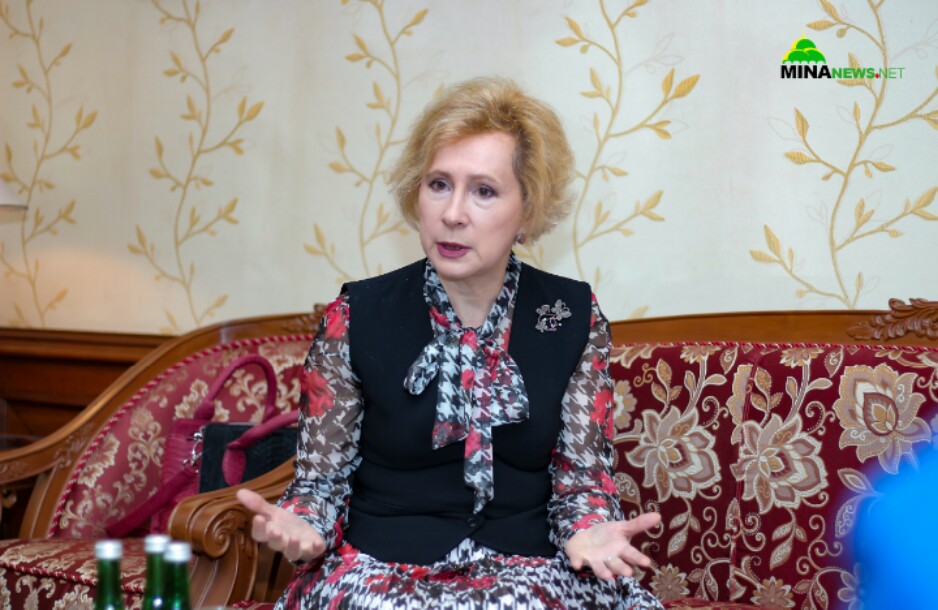

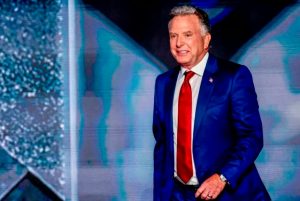
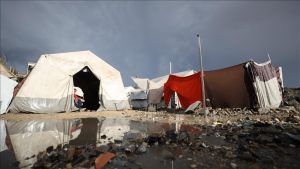
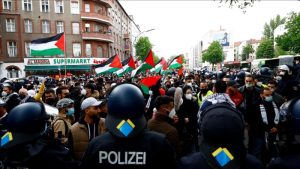
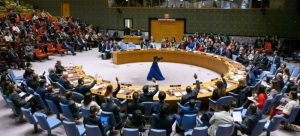
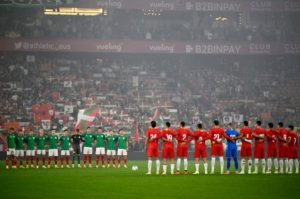
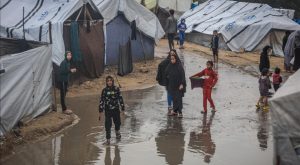
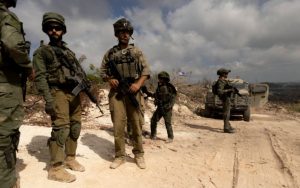
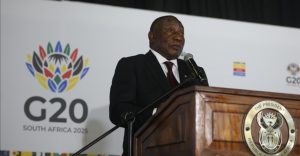
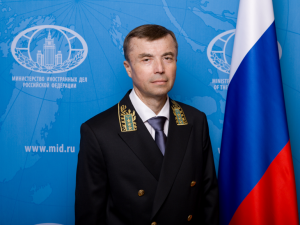
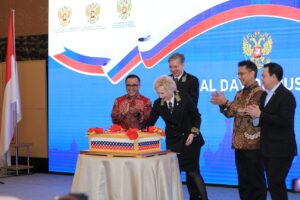
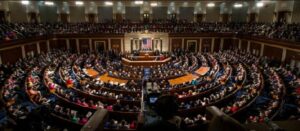
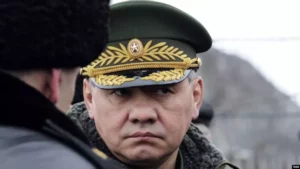
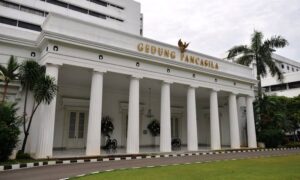
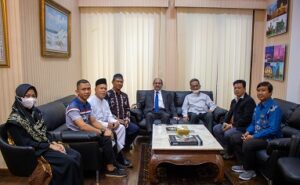







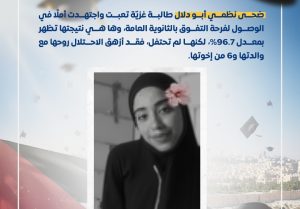
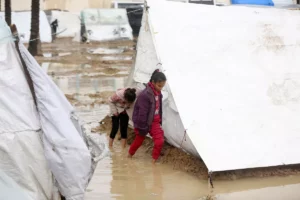
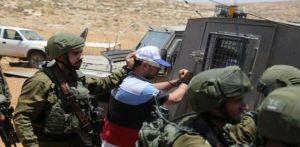



 Mina Indonesia
Mina Indonesia Mina Arabic
Mina Arabic